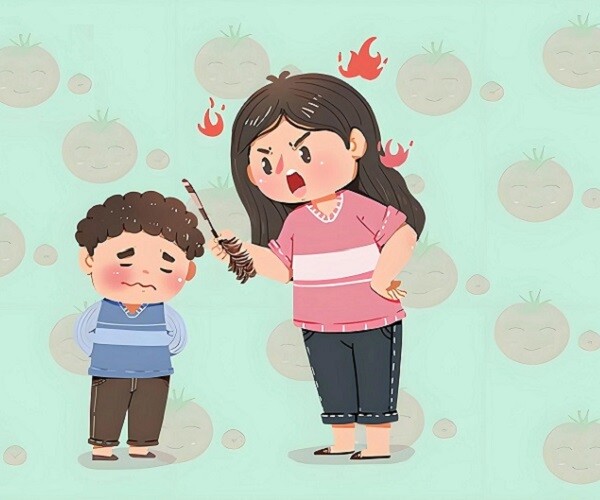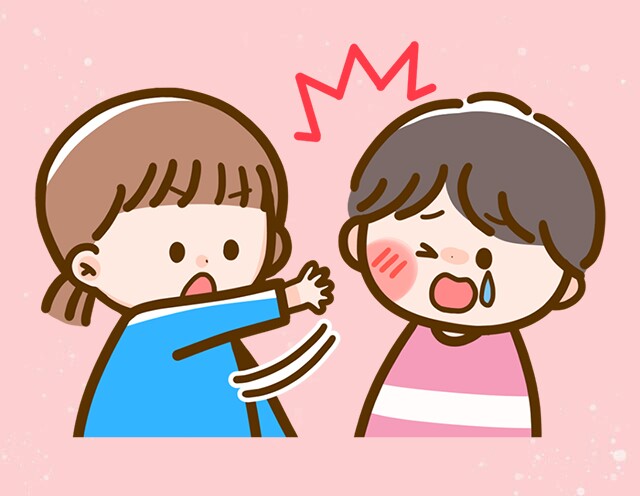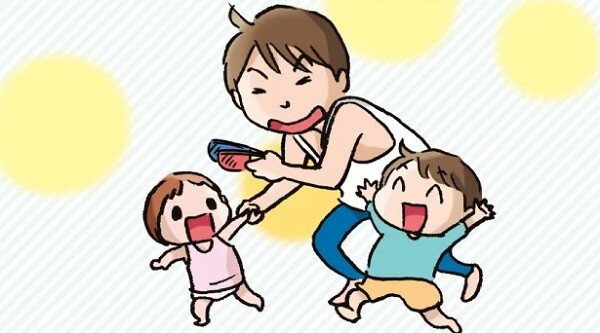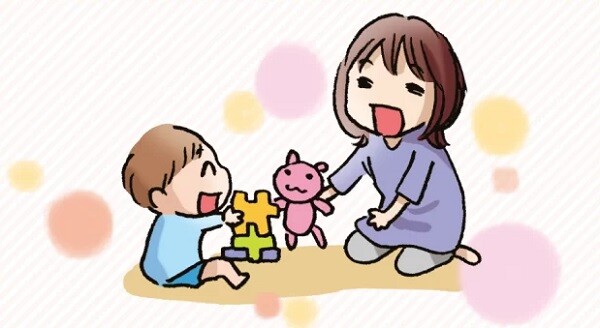It is understandable that parents may feel overwhelmed at times and resort to physical punishment as a means of disciplining their children. However, experts advise against this approach as it can have detrimental effects on a child’s psychological well-being.
Regardless of the reasons behind it, physical punishment can leave children feeling emotionally vulnerable, insecure, and doubtful about themselves. These experiences may lead to the development of anxiety, depression, and difficulties in forming healthy social relationships.
Additionally, there are certain areas of a child’s body that are particularly sensitive and can cause long-term physical and mental harm if struck.


Three areas to avoid when physically disciplining your child, no matter how angry you are
Avoid hitting the face
Surveys in China reveal that the face is the most commonly struck body part among children. In moments of anger, parents may slap their children without thinking about the potential consequences.
Slapping a child’s face can cause harm to their eyes, ears, and teeth. If the impact is strong enough, it may even affect their vision and hearing.
One individual shared their experience of being repeatedly slapped by their parents, resulting in a constant ringing in their ears and a noticeable decline in their hearing ability.
Additionally, direct blows to the face can damage the facial nerves, leading to disorders of facial expression and difficulty in appropriately expressing emotions.
Therefore, even in moments of anger, parents should refrain from hitting their children’s faces.

Avoid hitting the face.
Never hit the head
The head is arguably the most vital organ in the human body, especially in children. Their skulls are thinner than adults’, and the fontanel, or “soft spot,” on the top of the head is still in the process of closing.
Using force on a child’s head can affect brain development. The brain is rapidly developing during childhood, and any trauma can lead to long-term issues with cognition, behavior, and emotions.
Head trauma can cause brain cell damage, resulting in symptoms such as memory loss and difficulties in learning and social skill development.
The back of the head, where the spinal cord connects to the brain, is particularly sensitive. A blow to this area can cause damage to the opposite side of the brain due to the propagation of shock waves.
Avoid hitting the back
The back houses the spine, spinal cord, internal organs, and nerves. If struck with force, it can cause significant harm to the child’s health. The spine is not only the body’s support structure but also a crucial part of the central nervous system.
Given the fragile structure of a child’s spine compared to an adult’s, a strong impact can easily lead to spinal cord injury. The spinal cord is the conduit for information between the brain and the body, and any damage can result in severe consequences such as loss of motor function or sensation.
Spinal cord injuries affect mobility and impact other vital functions like sensation, digestion, and even respiratory control. If the spinal cord is damaged, children may struggle with regulating their digestive, excretory, and respiratory systems.

Avoid hitting the back.

So, where can you hit your child?
In certain situations, physical discipline may still be used as a deterrent. However, it is crucial for parents to maintain control over their emotions.
Parents should clearly understand the purpose of their actions—whether the discipline stems from anger or is a method of enforcing rules.
If parents cannot regulate their emotions, the psychological impact on the child can be significant, potentially leading to long-term emotional issues.
Therefore, parents should learn to manage their emotions, find ways to calm down, and breathe deeply. In some cases, a gentle tap on the child’s foot with a small ruler may be appropriate. However, physical discipline should not be a regular occurrence.

Parents should learn to manage their emotions and find healthy ways to discipline their children.
Instead of relying on physical punishment, parents can employ more civilized disciplinary methods. This includes setting clear and consistent boundaries, along with explaining why certain behaviors are unacceptable.
After disciplining, a hug and an explanation of why the punishment was necessary can help the child feel loved and secure, while also fostering a deeper understanding of their actions.
Of course, hitting and shouting at children are never recommended. Instead, help them express their emotions and worries, creating a safe space for them to voice their thoughts. This teaches children emotional management and strengthens their bond with their parents.
Parents, Embrace These 4 Simple and Easy Modern Parenting Trends Now
Parenting is a challenging journey, and many parents often find themselves overwhelmed with the myriad of concerns and responsibilities. However, by embracing a positive and proactive approach, modern parents can navigate the complexities of parenting with ease. Staying updated with the latest trends and adopting a forward-thinking mindset can transform the parenting experience, making it a simpler and more enjoyable journey.






































